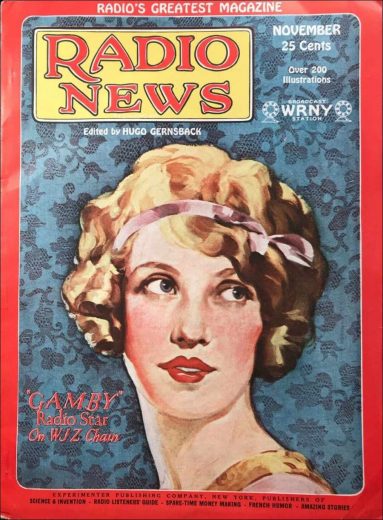World changes due to radio. In the boom of the 1920s, people rushed to buy radios, and business and social structures adapted to the new medium. Universities began to offer radio-based courses; churches began broadcasting their services; newspapers created tie-ins with radio broadcasts.
By 1922 there were 576 licensed radio broadcasters and the publication Radio Broadcast was launched, breathlessly announcing that in the age of radio, “government will be a living thing to its citizens instead of an abstract and unseen force.”
FDR Speaking on the Radio PhotoAs with television in later years, however, entertainment came to rule the radio waves much more than governmental or educational content, as commercial sponsors wanted the airtime they paid for to have large audiences. Most listeners enjoyed hearing their favorite music, variety programs that included comic routines and live bands, and serial comedies and dramas. Broadcasts of major sports events became popular as the medium matured and remote broadcasts became possible.
Radio was a key lifeline of information for the masses in the years of World War II. Listeners around the world sat transfixed before their radio sets as vivid reports of battles, victories, and defeats were broadcast by reporters including H.V. Kaltenborn and Edward R. Murrow. Franklin D. Roosevelt (at right), Winston Churchill, Adolph Hitler and other political leaders used the medium to influence public opinion.
Visits: 79



